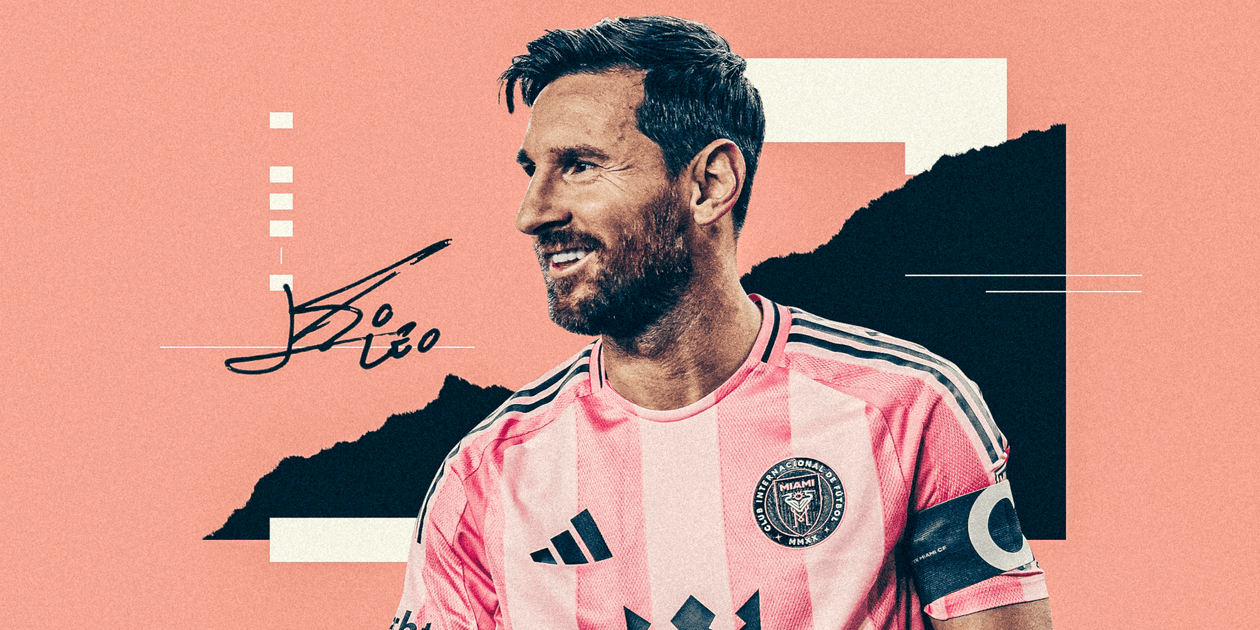The first hint that the wait was finally over for what had long felt like a formality — Lionel Messi committing his future to Inter Miami — came on Tuesday afternoon in the form of a simple heads up to the construction crew at Miami Freedom Park, the $1 billion stadium rising next to Miami International Airport.
There would be an interruption at the site on Wednesday, workers were told. Try to keep it business as usual. The crew was surprised the next day when the interference arrived in the form of two of the most famous footballers in history: Messi and David Beckham, who arrived for a video shoot that would unveil the new contract.
The workers kept their distance at first, as they were instructed. But by the end of the shoot, Messi was signing hard hats at the building he will soon christen.
The final documents were signed and sent over to Major League Soccer the night before at around 9 p.m., making final what had been reported months before and was long-expected: The Argentine legend was cementing his stay at Inter Miami — and for longer than many expected.
If all went to plan, the three-year extension would keep Messi in Inter’s famous pink kit until just a few months before his 42nd birthday.
“It makes me really happy to stay here and to continue with this project that, besides being a dream, has become a beautiful reality — playing in this stadium, at Miami Freedom Park,” Messi said in a team statement. “Since I arrived in Miami, I’ve been very happy, so I’m truly glad to keep going here.”
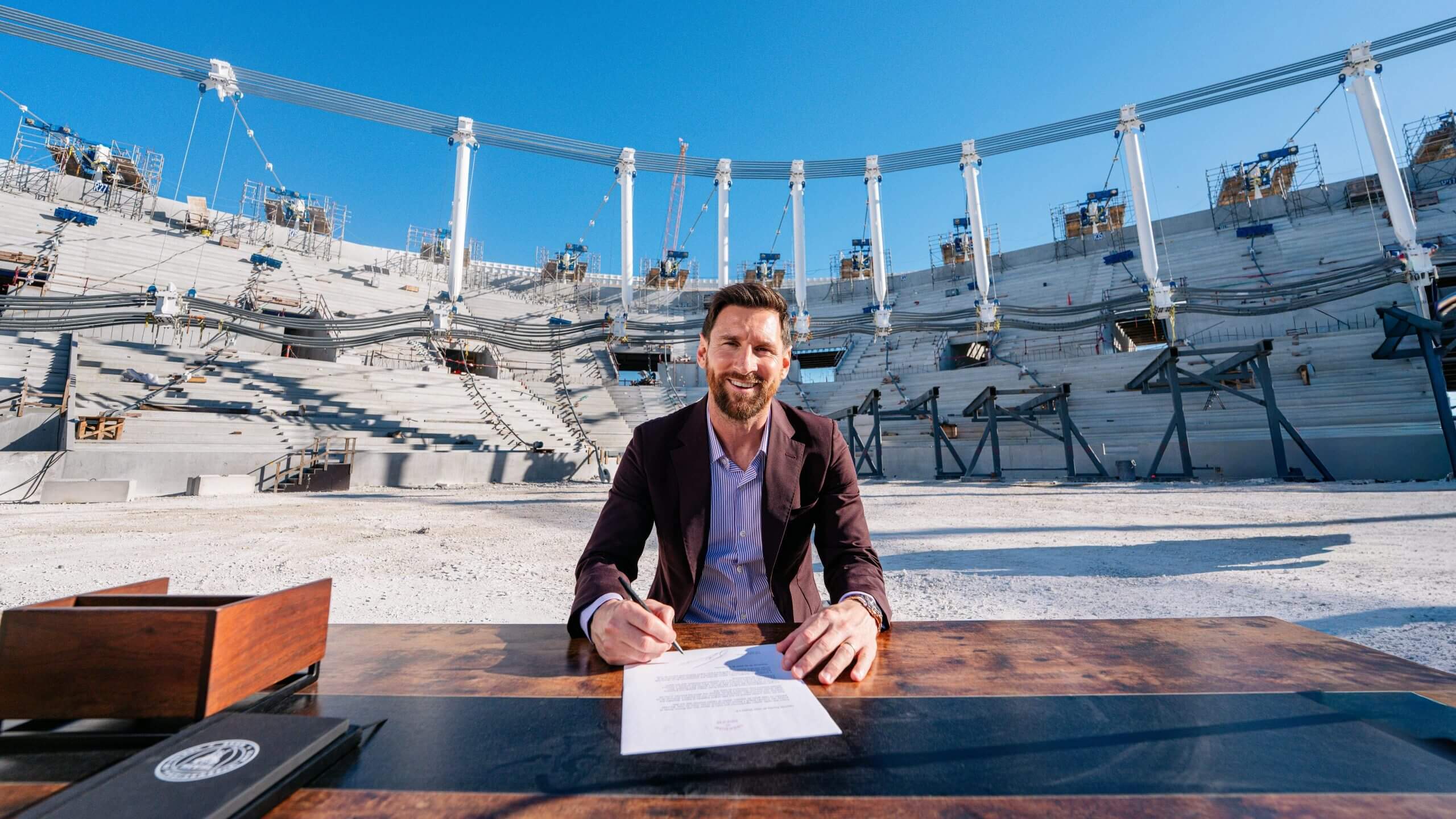
Lionel Messi signs a new contract with Inter Miami at the site of Miami Freedom Park, the club’s future home (Inter Miami)
It was, of course, not a mistake that the video shoot happened at Inter’s new stadium. Miami’s future and even Messi’s financial agreement with Inter Miami is directly tied to the No. 10’s place at the stadium next season. With Messi on the field, it’s far easier for Miami to sell out the stadium — the supporters’ seats, yes, but especially the high-money suites. The price is also substantially different for commercial activations inside the venue, as well as for the naming rights deal. Messi’s commercial heft is unmatched.
But where Inter Miami benefits, so does Messi.
This extension reinforced the Argentine’s forthcoming minority ownership stake in Inter Miami. Before Messi signed with Miami, Sportico valued the club at $585 million. This past year, Forbes valued it at $1.2 billion. Opening a new stadium — and doing so with Messi on the field — only drives that valuation further up, and with it the worth of Messi’s stake in the team.
The new deal also formalized what is becoming more clear with each passing year. Messi’s time in the United States, inaugurated with an exquisite game-winning free kick in July 2023, will not be a short-term arrangement. Messi in Miami might now be defined on the field by as many as five and a half seasons. But he likely won’t be going anywhere after that. Like Beckham, the Messi brand will be linked to MLS and American soccer for years after the generational star walks away from playing.
“What’s coming next isn’t just about looking back and everything we’ve been able to achieve over the years with Lionel on our roster,” club owner Jorge Mas said in a video released by Inter Miami. “The most important thing is what’s coming next and the beautiful chapters we’re going to be able to experience here together.”
There was little fanfare around the new contract in part because the framework of the deal had been done for some time. As far back as the spring, the two sides felt confident a deal would be completed.
Much of the last few months was spent with lawyers from each side hammering out the finer details of the contract. So while reports popped up about a move to Saudi Arabia or to Argentina, they were laughed off by people close to Messi and Inter Miami. Messi was suspended by MLS for skipping the All-Star Game, and that led to speculation that it might impact negotiations. It didn’t. They were mostly complete by that time.
Never did it feel like there was any conclusion different than this one: Messi inking what Mas said could very well be the World Cup winner’s final contract. The agreement between Miami and Messi was done weeks ago. The final steps involved MLS, partnerships and MLS Players Association review. MLS approved the deal earlier in the week, which led to an announcement ahead of the playoff opener — one whose timing caught some inside the league off guard.
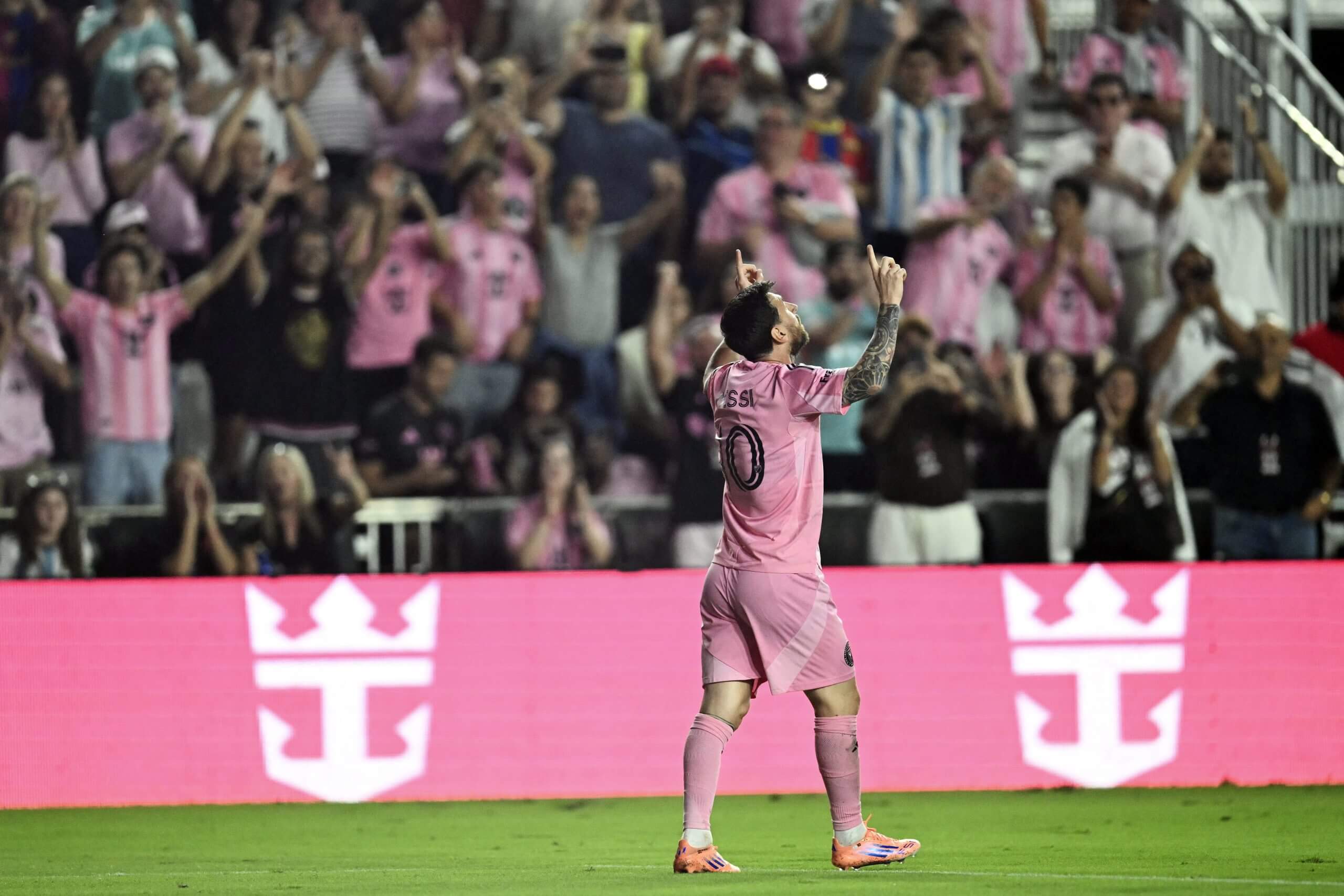
Lionel Messi has given fans in South Florida plenty to cheer about since his arrival in the summer of 2023 (Chandan Khanna / AFP / Getty Images)
The assumption upon the announcement that Messi signed to play past the age of 40 was that it confirmed we would see the No. 10 next summer for Argentina at the World Cup. The Athletic understands that Messi has not yet made a decision regarding his World Cup participation, however.
As he has long insisted, Messi intends to make that decision closer to the tournament depending on his health, fitness and desire over the first half of the season.
What the re-signing has allowed, however, is for Messi to begin thinking about his legacy in the United States. When he first arrived in Miami, he insisted he wasn’t thinking of anything beyond enjoying his life both on and off the field.
“I made this decision based on a lot of reasons. We thought about it, my wife and kids were part of the decision, my family in general,” Messi said in August 2023 in the only press conference he has given since arriving in Miami. “Honestly I don’t think (about growing the game, in that way.) I came here to play, to continue enjoying football, which is what I’ve loved my entire life.”
That has very much gone to plan. Messi and his family love life in the U.S. But Miami’s run in the Club World Cup this summer transformed how Messi thought about his legacy in MLS, according to sources briefed on Messi’s conversations internally. Messi understood that Miami couldn’t contend with Europe’s elite clubs at the tournament. Still, something clicked for him during the inaugural tournament in the U.S.
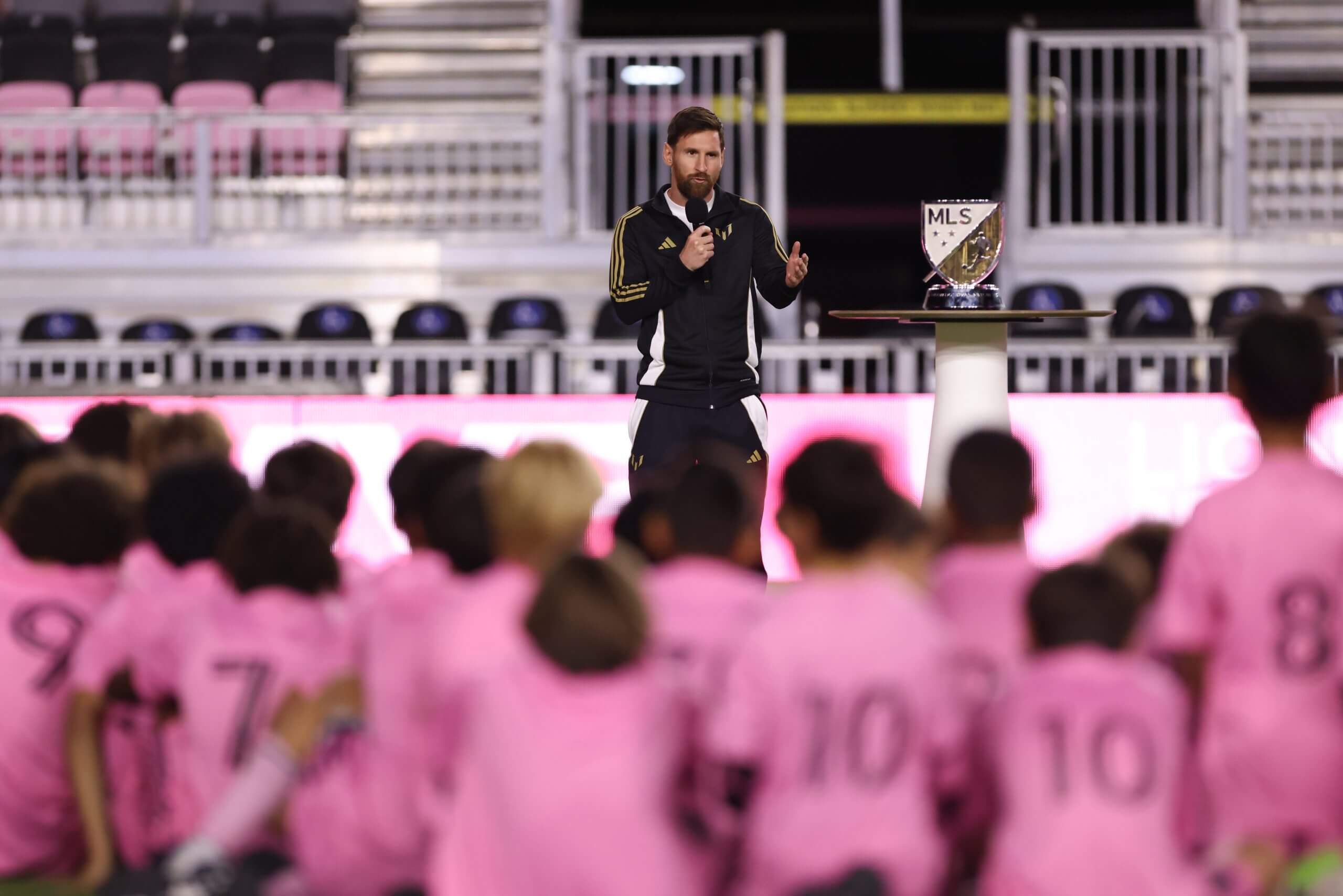
Lionel Messi speaks to Inter Miami academy players upon receiving his 2024 MLS MVP award (Sam Navarro / Imagn Images)
It’s part of the reason why he created The Messi Cup, a youth tournament that will pit Inter’s under-16 team against Atlético Madrid, Barcelona, Chelsea, Inter Milan, Manchester City, Newell’s Old Boys and River Plate this December at Chase Stadium in Fort Lauderdale. There are talks to invite more MLS academy teams in future editions.
Simply put, Messi wants to see MLS teams compete more against top global opponents. It’s not the first time MLS academy teams have played top global competition. Those types of tournaments have existed for decades, from the Dallas Cup to Generation Adidas Cup. But Messi diving into the fray and putting his name on a youth soccer tournament, shows that he wants to play a role in driving the league — and the sport in the U.S. — forward.
The question is whether he’ll ever embrace a role as a power broker in the direction of MLS’s first-team product, as Beckham once did when he played for the LA Galaxy. His reluctance to do media, where his voice could sway decision-making at the board level, has certainly impacted the magnitude of his impact in North America.
Even without his explicit endorsement, Messi’s commercial and on-field impact was enough to accelerate conversations around change. His dominance with Miami has been unprecedented, but he is still missing one important milestone.
After Inter Miami’s season ended in shocking fashion at home last season with a loss to an Atlanta United team that finished 34 points behind them in the regular season standings, it didn’t take long for Mas to assure fans that the next season — 2025 — wouldn’t be Messi’s last in MLS.
“As I have said before, and I will repeat it now: I fully expect that in the opening of our new stadium in 2026 and the opening of our 2026 MLS season after a trophy-laden 2025 season, that Leo Messi will be our No. 10,” Mas said in November 2024.
Messi and Mas spoke after the season, when Tata Martino’s surprising resignation forced Miami into a coaching search. Miami’s majority owner didn’t hide that he consulted Messi on whom the hire should be.
“Leo gave me what I asked him, which was input,” Mas said. “That was Leo’s involvement and engagement with me, which (happens) frankly all the time.”
Within days of Martino’s departure, Messi’s former Argentina and Barcelona teammate, Javier Mascherano, was named coach. That moment encapsulated Messi’s role in South Florida. He is, of course, much more than a player.
By just about any measure, Messi has been a success in MLS. He has made an unprecedented commercial impact, turning Inter Miami into a global brand. Miami’s pink shirt is as ubiquitous globally as some of the sport’s historic giants. Messi has sold out stadiums across the continent. Inter Miami’s revenues skyrocketed, as did its valuation.
On the field, Messi just had one of the most dominant seasons in MLS history with 29 goals and 19 assists. He took home the 2025 Golden Boot as top scorer and is expected to win a second consecutive Most Valuable Player award — the first player to do so in MLS history. Messi has 53 goals and 37 assists in 57 MLS games, or 1.58 goal contributions per game. It’s a staggering number, and yet one that fits neatly into the many astounding stats that have defined Messi’s alien-like impact on the sport.
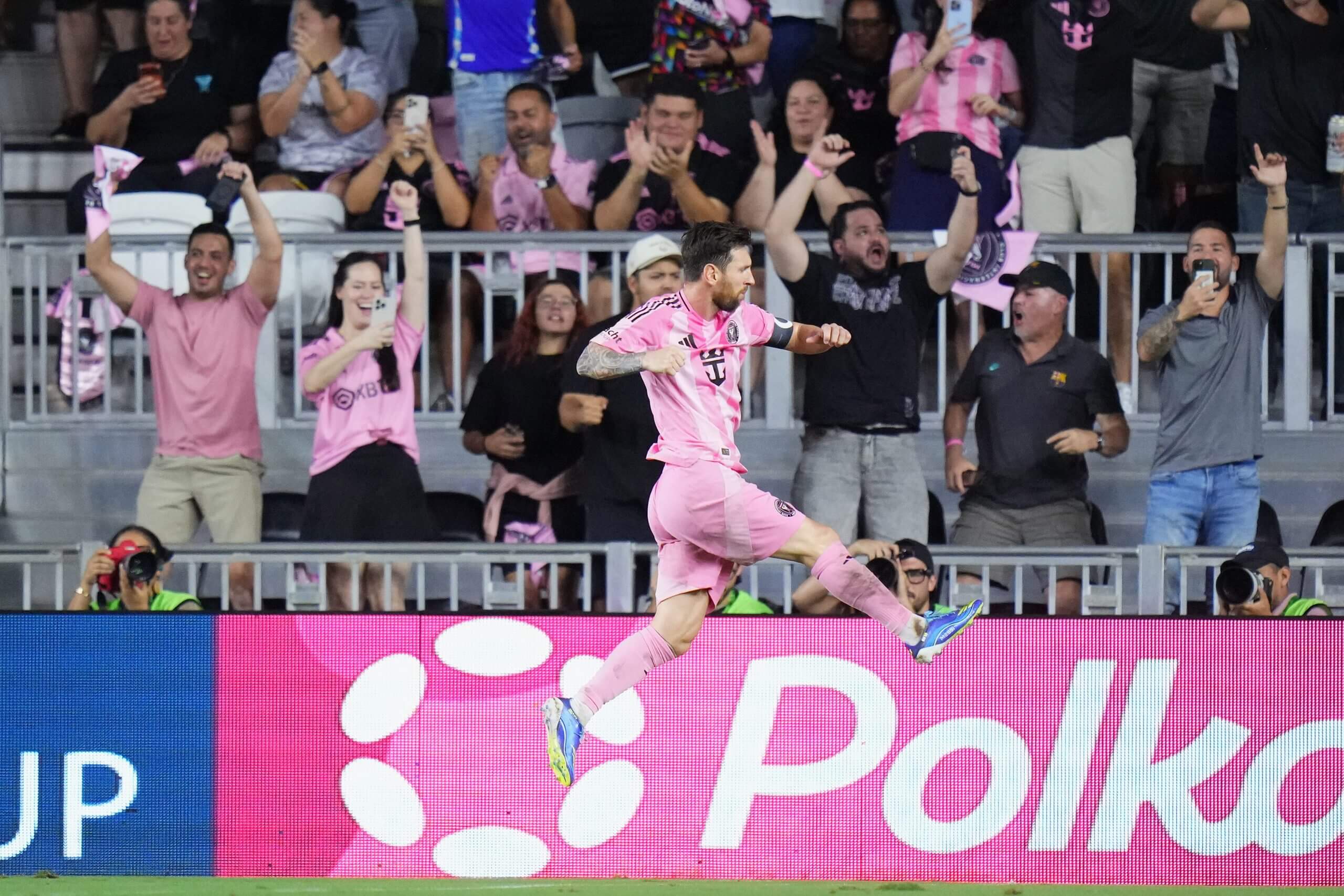
Lionel Messi won the 2025 MLS Golden Boot with a league-best 29 goals (Rich Storry / Getty Images)
As Mas declared last year, Messi indeed is coming back to open the stadium. But the trophy quest this season has, so far, come up empty. Inter Miami was knocked out of the Concacaf Champions Cup semifinals at home by the Vancouver Whitecaps. It overperformed in the Club World Cup, becoming the only MLS team to advance from the group stage (thanks to a Messi free kick vs. Porto) before a humbling defeat in the round of 16 to European champions Paris Saint-Germain. Miami then fell in the Leagues Cup final to Seattle and finished one point shy of another Supporters’ Shield.
MLS Cup, then, is the only trophy left on offer this season. On Friday night, in his first game since signing the extension, Messi scored twice to lead Miami to a win that put it ahead in its first round best-of-three series against Nashville SC. He seems set on securing the major trophy with Miami that has eluded him through his first two-plus years in MLS.
This is very much the end of the first chapter of Messi in MLS. Next year, there will be no Sergio Busquets or Jordi Alba on the field next to him. Both announced their respective retirements — decisions that were mostly expected in-house and didn’t alter Messi’s intent to re-sign. Luis Suárez’s future remains up in the air. Close friend Rodrigo De Paul is there, but there will be a chance to add at least one more star to the mix. How Miami builds around Messi for this second (and likely final) on-field chapter will be a study in what the club has learned from the last few seasons.
As Messi continues to rewrite MLS record books and as Miami retools, it’s important not to lose sight of the bigger picture. He is also a partner in the Miami project — a literal owner of the team, as soon as his playing days are done. His investment in the club is a long-term one.
Messi’s legacy in North America, then, will be defined not solely by how many trophies he wins but by how his influence in American soccer extends beyond his playing days.
Last week at the Miami Freedom Park video shoot, it was notable that Messi brought his wife, Antonella, and his three kids along with him. Beckham flew his parents to Miami for the occasion. It was truly a family affair. The four owners — Jorge and Jose Mas, Beckham and Messi — walked around the stadium pointing to where things will eventually be when the building is complete.
It’s a project they’ve taken on together, cementing that Miami and Messi will always be intertwined.

